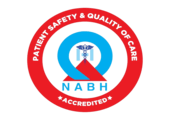What is High Eye Pressure?
High eye pressure occurs when the fluid in your eye, called aqueous humour, doesn’t drain properly. This leads to an increase in pressure inside the eye, which can damage the optic nerve. While not everyone with high eye pressure develops glaucoma, it remains one of the most significant risk factors for the condition.
Signs of High Eye Pressure
High eye pressure can be tricky to detect because it doesn’t always cause noticeable symptoms. However, some signs to watch for include:
- Headaches or Eye Pain: Persistent headaches, especially those around the eyes, may indicate elevated eye pressure.
- Blurred Vision: Difficulty focusing or occasional blurriness can signal changes in eye pressure.
- Halos Around Lights: Seeing rainbow-like halos around bright lights can indicate pressure-related issues.
- Eye Redness: Chronic redness might indicate underlying pressure problems.
- Reduced Peripheral Vision: Loss of side vision is often one of the earliest signs of glaucoma.
If you experience any of these symptoms, it’s important to consult an eye specialist immediately.
Glaucoma: The Silent Killer of Sight
Glaucoma is a group of eye conditions that damage the optic nerve, which transmits visual information from the eye to the brain. When left untreated, glaucoma can lead to irreversible vision loss and blindness.

Types of Glaucoma
Primary Open-Angle Glaucoma: The most common form, this progresses slowly and often without symptoms.
Angle-Closure Glaucoma: A less common but severe form, where eye pressure spikes suddenly, causing pain and vision loss.
Congenital Glaucoma: A rare form present at birth, caused by improper development of the eye’s drainage system.
Congenital Glaucoma: A Special Concern
Congenital glaucoma is particularly concerning because it affects infants and young children. Signs include redness, excessive watering, avoiding sunlight, hiding their face, or the cornea turning white, enlarged cornea, and large eyeballs.
Early diagnosis and treatment are critical to prevent lifelong vision problems in children. Shekar Eye Hospital specialises in the diagnosis and management of congenital glaucoma, offering hope for young patients and their families. A child with congenital glaucoma needs regular follow-ups and repeat surgeries and a need for anaesthesia.
Ways to Protect Your Vision
Protecting your vision starts with regular eye check-ups, especially if you’re at risk for glaucoma. Here are some actionable steps to help safeguard your eyesight:
Schedule Regular Eye Exams: Early detection is key. People over 40 or with a family history of glaucoma should have annual eye check-ups.
Maintain a Healthy Lifestyle: Exercise regularly, eat a balanced diet rich in leafy greens and omega-3 fatty acids, and stay hydrated.
Avoid Eye Injuries: Wear protective eyewear during sports or hazardous activities.
Follow Prescribed Treatments: If diagnosed with high eye pressure or glaucoma, use prescribed medications consistently to prevent progression. Followup is very important and even after surgery regular checkup is a must.
Know Your Family History: Genetics play a role in glaucoma risk. Inform your eye doctor about any family history of the condition.
Avoid self-medication with steroid drops/ointments. Use them only for the duration as prescribed by your eye doctor.
How can Shekar Eye Hospital Help?
At Shekar Eye Hospital, we are committed to providing expert care for glaucoma and high eye pressure. Our advanced diagnostic tools and personalised treatment plans ensure the best outcomes for our patients. Whether it’s routine screening, managing congenital glaucoma, or offering surgical options, our team is here to protect your vision.
Frequently Asked Questions
1. What are the first signs of glaucoma?
Early signs often include loss of peripheral vision, seeing halos around lights, or mild eye discomfort. Regular check-ups can detect glaucoma even before symptoms appear.
2. Is high eye pressure always a sign of glaucoma?
Not necessarily. High eye pressure increases the risk of glaucoma but doesn’t always lead to it. Regular monitoring is essential for those with elevated IOP.
3. Can glaucoma be cured?
While there is no cure for glaucoma, its progression can be managed with early detection, medications, or surgery, preserving vision for many patients.
Your Vision is Precious—Don’t Take It for Granted!
High eye pressure and glaucoma are serious but manageable conditions with early detection. At Shekar Eye Hospital, we are dedicated to helping you protect your sight and maintain healthy eyes. Schedule an appointment today and take the first step towards safeguarding your vision.






